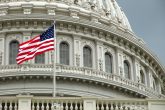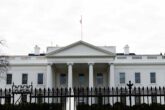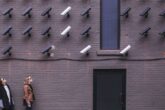October 07, 2020
Successful 2020 Elections Will Require a Whole-of-Society Approach
According to a recent survey conducted by The American Social Survey, 87 percent of Trump supporters and 42 percent of Biden supporters are reportedly worried about election fraud. Public confidence in the 2020 elections is dangerously threatened as citizens fear the election is headed for a tailspin. Short on time and money, states are racing to implement effective mail-in and safe in-person voting amid a raging pandemic. In order to carry out successful elections, American leaders must implement a whole-of-society approach. Every citizen, from Congress to the Intelligence Community to social media companies to the general public, has a role in supporting a successful 2020 election.
To begin, the U.S. Postal Service (USPS) must be prepared to deliver every mail-in ballot in time to be counted. At the same time many states moved to expand access to vote-by-mail, USPS announced cost-cutting measures that severely delayed mail delivery. Although the Postmaster General ultimately rolled back these changes, 46 states and the District of Columbia still face serious delays. Given that some states require ballots to arrive by election day, regardless of when it was postmarked, mail delays could disenfranchise voters by disqualifying their mailed-in ballots. USPS should be preparing now to handle the large influx of mail around election day to ensure ballots are delivered on time.
Every citizen, from Congress to the Intelligence Community to social media companies to the general public, has a role in supporting a successful 2020 election.
States and localities need to be prepared to both support in-person voting and handle a massive increase in the number of mail-in ballots. As the primary elections displayed, this is no simple task. Georgia's primaries were thrown into chaos when polling stations were relocated day-of, causing many to open late, while New York took weeks to announce the results after receiving 10 times the normal number of mail-in ballots. States cannot be so ill-prepared this time; they must solidify plans and prepare to support functioning in-person and mail-in balloting. Plans should include increasing the number of drop boxes to decrease pressure on mail delivery, as Connecticut and Maryland have done, instead of limiting availability as Texas has. Furthermore, states should publicize their plans to promote public confidence in their efforts and the election.
Congress should support USPS and the states by providing resources. The Senate should consider the bill passed by the House that would increase USPS funding and require USPS to prioritize election mail. In May, Congress allocated only $400 million to prepare for the elections, and every state, territory, and the District of Columbia applied for funding. By July those funds were already running out and states were pleading for more funding. Congress should pass additional legislation adequately funding election preparation. In addition, with a president determinedly sowing doubt in mail-in voting, Congress must step up to increase confidence in the election. Congressmembers have a unique relationship with their constituents; members should utilize this relationship by increasing outreach to their constituents to provide facts about mail-in ballots and the election process, quell unsubstantiated concerns about fraud, and promote confidence in the election.
For its part, the judicial branch must be ready for legal challenges. From contesting mail-in ballots to challenging the official vote count, the likelihood of fraught legal battles is high. In fact, the 2020 elections have already seen a record-breaking number of lawsuits, and both the Biden and Trump campaigns have begun amassing huge teams of lawyers to prepare for legal battles. Due to the pandemic, some courts have limited their operations; court administrators should have plans to ensure the judiciary is ready to quickly respond to an influx of election-related litigation. The judiciary, at all levels, must be prepared to handle these cases in an inscrutable, unbiased, non-partisan, and timely manner.
The judicial branch must be ready for legal challenges.
The Intelligence Community (IC) warned that foreign forces are attempting to influence the 2020 presidential election and deepen U.S. political divisions. The IC must be diligent and transparent in reporting interference attempts to the executive branch, Congress, state governments, and the public. All such assessments must avoid even the appearance of political bias. Inadvisedly, intelligence officials announced in August they would only brief Congress via written reports. After significant outcry, the IC agreed to resume in-person briefings, but only with congressional intelligence committees. It is vital that these in-person briefings continue so Congress and the public are informed now; we “cannot afford to wait for an after-the-fact, four-year, five-volume, heavily redacted written review explaining how a foreign government influenced the outcome of the 2020 election,” a recent CNAS report observes. The Intelligence Community must be forthcoming on threats to the 2020 elections.
Social media companies should assist the fight against election interference by deleting posts that contain disinformation. Some companies have taken positive steps: Twitter banned political ads, and Facebook is blocking state-run media ads and dedicating 40 teams to election integrity. Nevertheless, in August the U.S. National Counterintelligence and Security Center publicly announced that foreign adversaries are utilizing social media as a tool to influence the presidential election. Social media companies must take quick and decisive action by removing posts and deleting accounts that are purposefully sowing discourse and spreading disinformation in attempt to undermine U.S. elections.
The media must be responsible in its reporting on election night. Given that many states will not even begin counting ballots until election day and that a record number of mail-in ballots is expected, it is highly unlikely that results can be announced on election night. Journalists must be careful not to inadvertently sow uncertainty and doubt. They also must be cautious in what and how they report; with the large number of mail-in ballots, it is conceivable that the candidate leading on election night may not be the ultimate winner. The media should refrain from speculating or making premature predictions about the results.
Finally, the American public has perhaps the most important role in protecting the 2020 elections. Citizens should prepare for an atypical election night, as it is highly unlikely that election results will be announced on November 3rd. This should be viewed as a responsible reaction to the increase in last minute mail-in ballots rather than a reason to call the election into question. Every American should have a voting plan to ensure their vote will be counted. Furthermore, voters must understand—and believe—that outside forces are attempting to influence them and, by extension, their votes. Director of the National Counterintelligence and Security Center William Evanina warned, “the America voter is the primary target of these foreign influence and disinformation efforts;” understanding this critical fact will allow voters to be on guard to identify and counter mis- and disinformation. Voters must stay informed and be deliberate when reading news and social media posts. Doing so will minimize how far false information is spread, hinder attempts by foreign adversaries to influence U.S. elections, and allow the public to have more confidence in the outcome.
The U.S. has held elections in times of crisis before, but the 2020 elections face a myriad of threats and challenges. In the midst of a pandemic, an economic crisis, and a racial reckoning, voting is more important than ever. To have results we can trust, state and federal governments and agencies, media companies, and the public must band together to protect the voters, the votes, and the 2020 elections.
More from CNAS
-
Sharper: National Security in a Divided Congress
Following the 2022 midterm elections, a new U.S. Congress was sworn in, resulting in a divided House and Senate with narrow margins. Key national security legislative items ar...
By Anna Pederson & Cameron Edinburgh
-
Schedule F: An Unwelcome Resurgence
The U.S. government is able to take on high-risk, high-cost ventures—nuclear security, pandemic response, environmental clean-up, food safety, and more—because civil servants ...
By Loren DeJonge Schulman
-
Western Hemisphere Migration is a Long-Term Challenge
Addressing western hemisphere migration should be a national and international priority....
By Carrie Cordero & Cris Ramón
-
The Lawfare Podcast: Klein and Cordero on the Latest FISA Numbers
To discuss the latest in FISA transparency news, the data and what it all means, Benjamin Wittes sat down on Lawfare Live with Carrie Cordero of the Center for a New American ...
By Carrie Cordero




